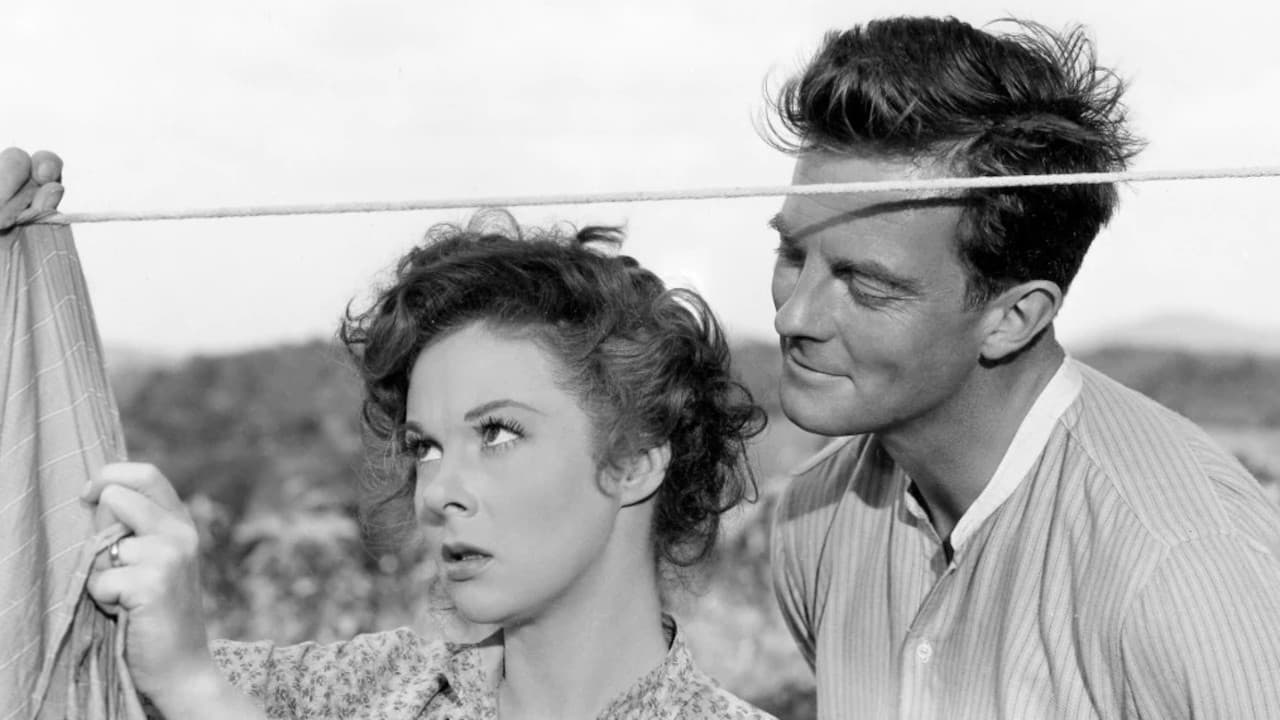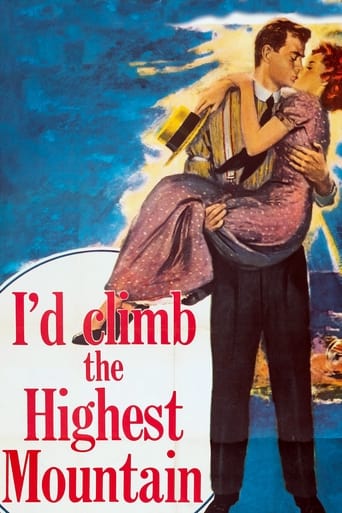

In the early 1900s, a city girl (Susan Hayward) marries a country parson (William Lundigan) from North Georgia's hill country, coming to live with him and be the proud preacher's wife, but there are obstacles to overcome. After a spunky start, this adaptation of Corra Harris' book becomes mired in pointless, pious melodrama, coated heavily with religious uplift (which may or may not be ingenuous). The film scores points for not making the minister a stodgy sort--on the contrary, he's frisky and playful, like an overage kid, so much so that his new bride seems like a cold fish by comparison. Still, their early days together have a folksy flavor which is appealing, and a sermon the preacher gives about marriage is full of happy tears. But when a mysterious fever makes the rounds, a boy is drowned at a picnic, and the wife loses her baby and her faith in God, the film drains itself of good will. Hayward has a fun sequence scaring away a wealthy admirer of her husband, but otherwise this character doesn't allow the actress to be friendly or capricious at all; she's a dullard. Lundigan, looking like a relative of Pat Boone's, has the more colorful role (surprisingly) and his sensitivity to the townspeople is well-captured. The Technicolor photography is disappointing, as is the direction and the script--why do religious-themed movies always have to turn sanctimonious? ** from ****
... View MoreAs a native Georgian, I was on a trip to the North Georgia mountains with my parents and their friends and 2 daughters in July of 1950 (I was about to turn 12 at the time). We happened upon the site where the filming of the drowning scene was just being completed. (I still have a photo by my mother depicting me standing beside the buggy used by Lundigan and Hayworth in the movie.)A recent showing of the movie on TV rekindled my rather nostalgic interest in that period of my life, and I've just returned from a trip to the area where the movie was filmed. Although I enjoyed visiting some of the locations used in scenes from the film, the most enjoyable aspect of my trip was a visit to Brenau College in Gainesville, Ga. where a historical society meeting was being held in which former child actors/actresses gave their recollections of the filming.I find the film to be acceptably competent, although I wonder if Hayworth might have been better portrayed/acted in her role had she been cast opposite someone other than Lundigan. I found the portrayal of his role to be rather stilted and unconvincing.
... View MoreI really enjoyed this wholesome, thought provoking and inspiring film "I'D Climb The Highest Mountain" Susan Hayward is magnificent as the Preachers wife.. Shes not playing an alcoholic, a murderer or a tramp here/(roles usually associated with Hayward) yet she is wonderful beautiful and touching You feel her conflict regarding her religious/life convictions with every movement & gesture She underplays and plays so well Also very good is William Lundigan in one of his better roles as the Preacher Thompson Fine supporting cast including Ruth Donnelly and Leo Genn as the atheist neighbor..Beautifully photographed.. I really enjoyed this film a an unexpected gem
... View MoreThey were simpler times, in the 19th century N. Georgia Mountains. A good portrayal of period-referenced American sentiments and sensibilities overall. A very high-profile cast performs in poetic unison against the pleasing backgrounds. A full range of human emotion is encapsulated within a smoothly flowing plot and dialogue. Hope prevails over life's challenges. Kudos to the director for capturing it all within a wonderfully coordinated conceptual frame.
... View More